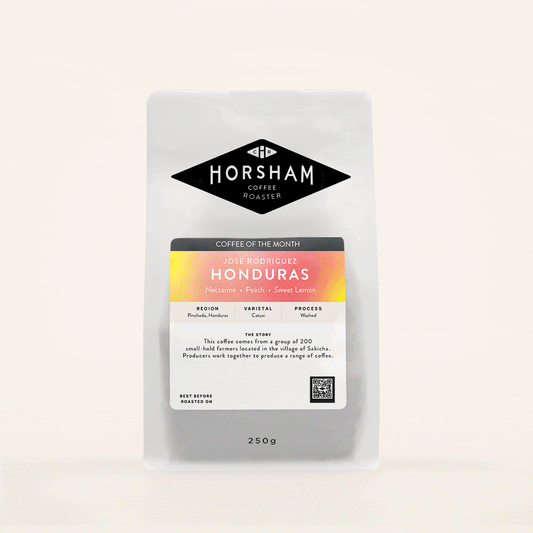Our focus at Horsham Coffee Roaster has always been long term sustainability and building relationships with the coffee producers that we work with. Our report was updated in October 2025 (can be viewed at the bottom of this page) and over 50% of our total roasting volume is now made up of coffees with full traceability and financial transparency.
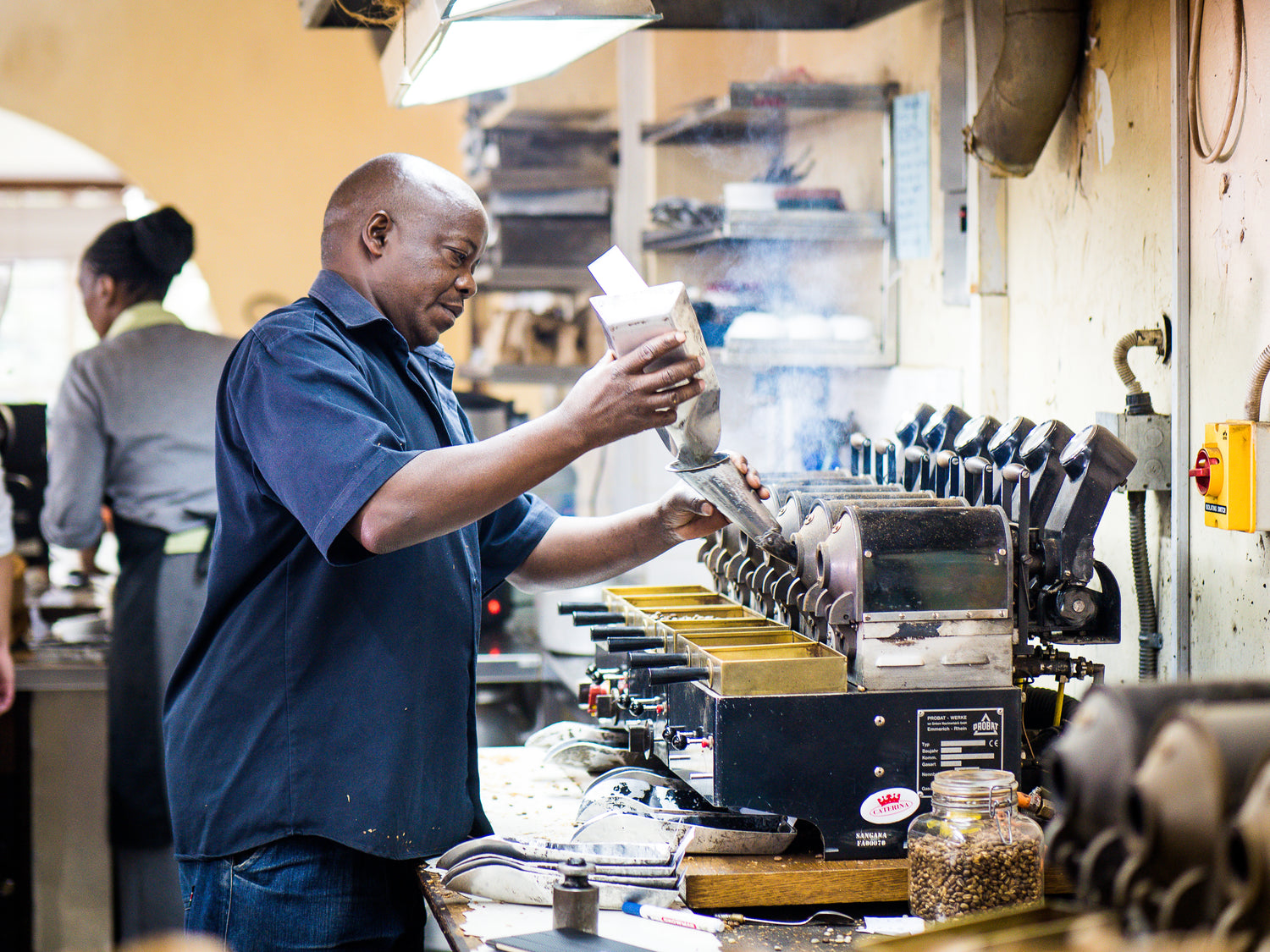
Sample roasting at Dormans in Kenya
Over the 10 years Horsham Coffee Roaster has worked to develop long term relationships with producers in Rwanda. In 2016 we started buying directly from Kenya and in 2019 we added Costa Rica to the list. We've decide that we'd like to share a bit more of our story and the work we've put in to ensure that the farmers we work with are paid a fair and sustainable price.
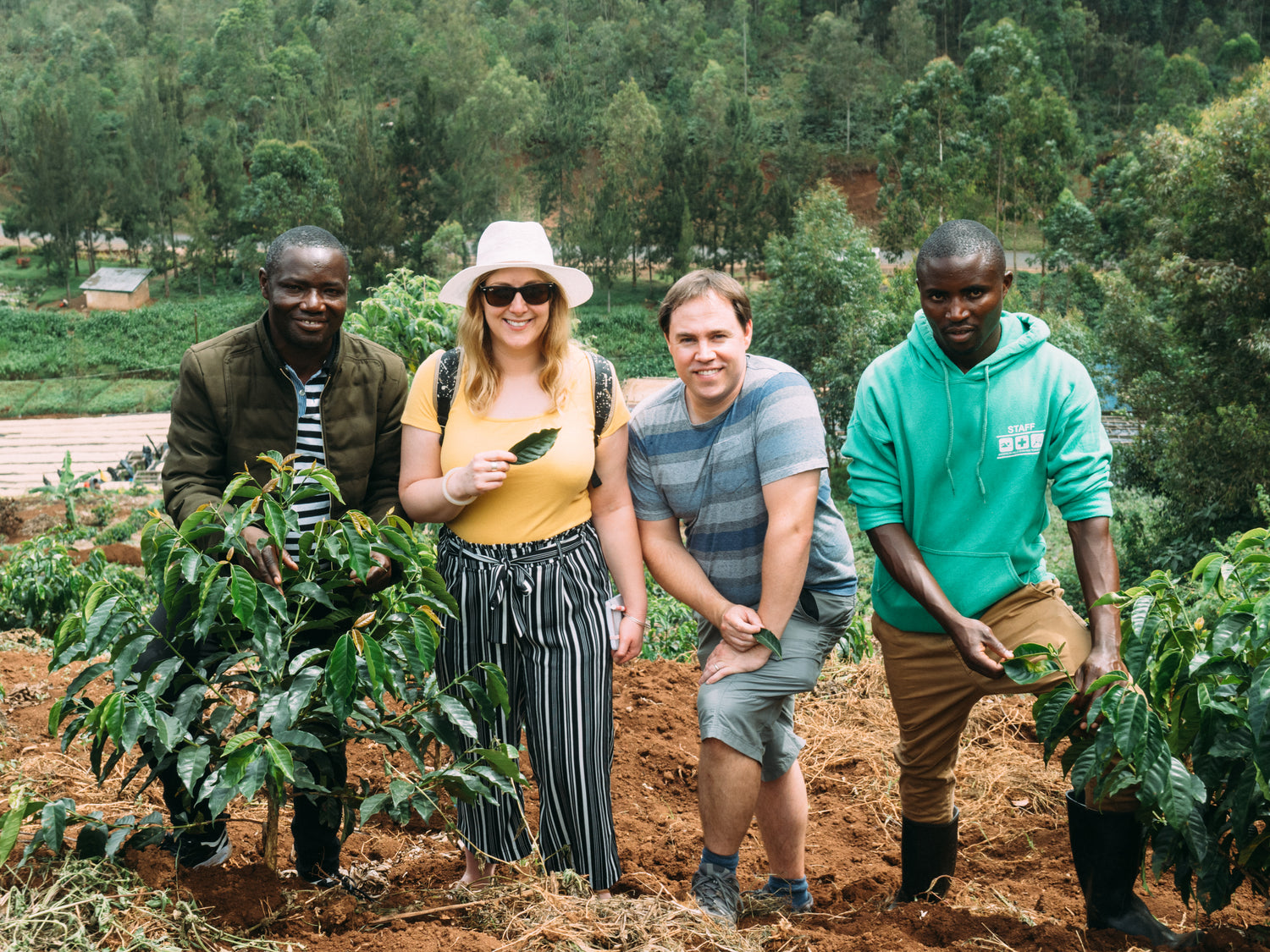
Jean Paul far left, his brother and washing station manager far right
In 2016 we visited Kenya for the first time and were introduced to Kianderi washing station. They are a small operation of 500 farmers and this washing station is part of the larger Inoi co-operative. We were very impressed with the quality they were producing and have been buying their coffee every year since.
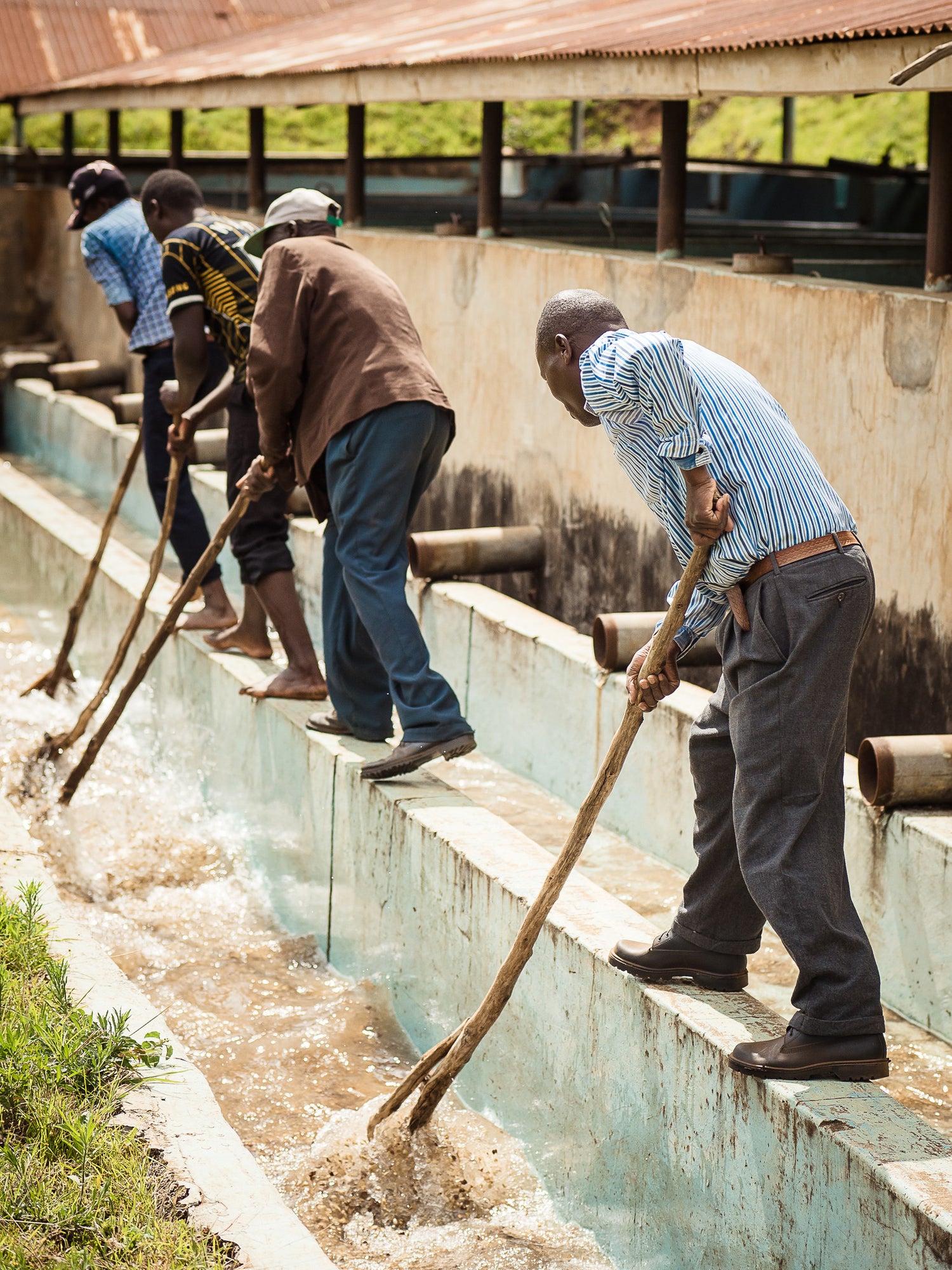
Kianderi grading channels
In 2016 we visited Kenya for the first time and were introduced to Kianderi washing station. They are a small operation of 500 farmers and this washing station is part of the larger Inoi co-operative. We were very impressed with the quality they were producing and have been buying their coffee every year since. During the visit we were also introduced to Kangunu co-operative. They are much larger than Kianderi with around 1700 farming members and are both UTZ and Rainforest Alliance certified. They too produce some outstanding coffees and we managed to purchase from them for the first time in 2019.
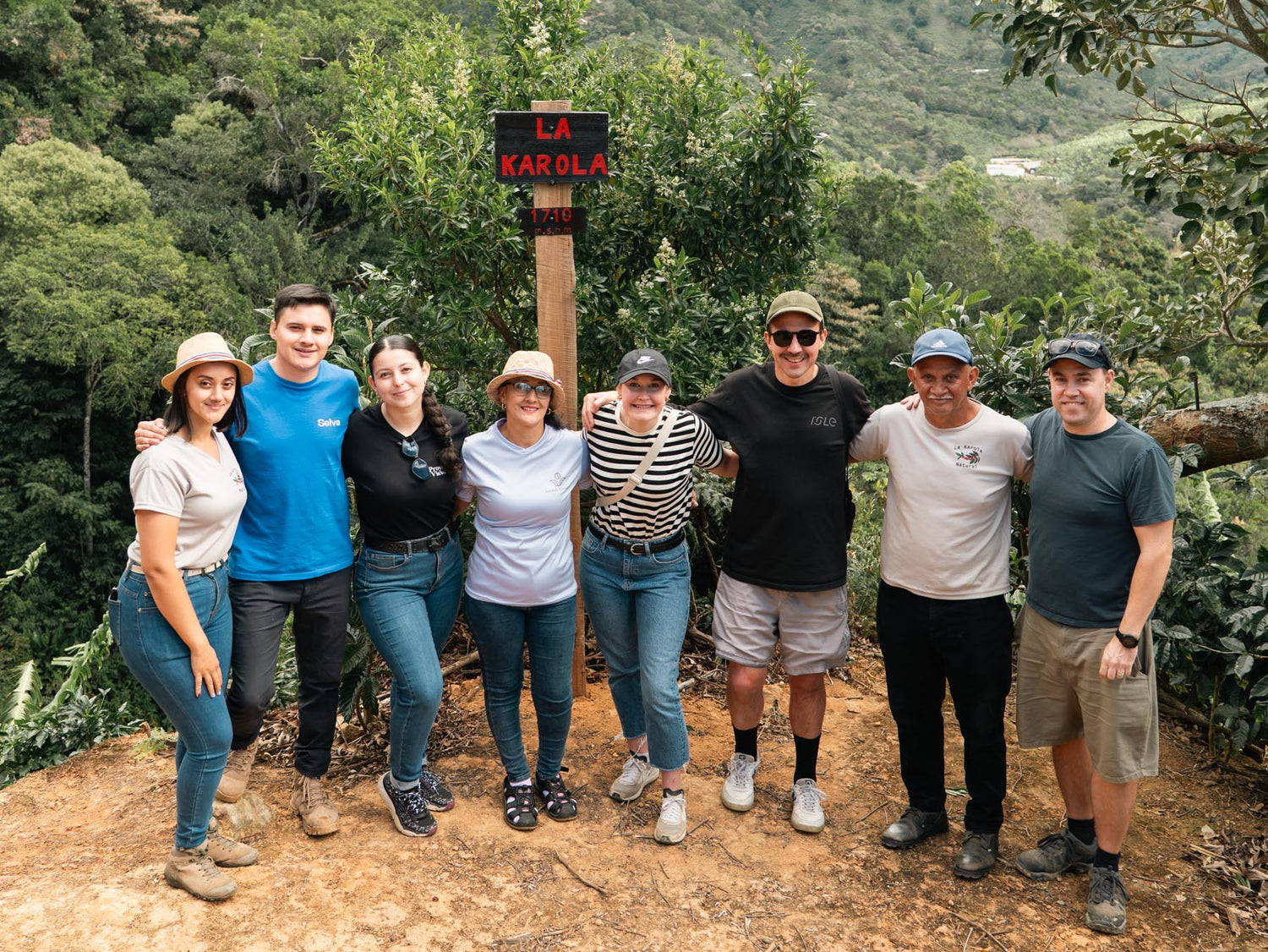
The Mora family at their farm in Tarrazu
IIn 2019 we added Costa Rica to our direct relationship list of coffees. We've been buying coffee from Costa Rica directly with the help of Selva Coffee. We try to visit our partner producers in Costa Rica every year. These are all small family owned operations producing incredible coffees using a wide range of processing methods.
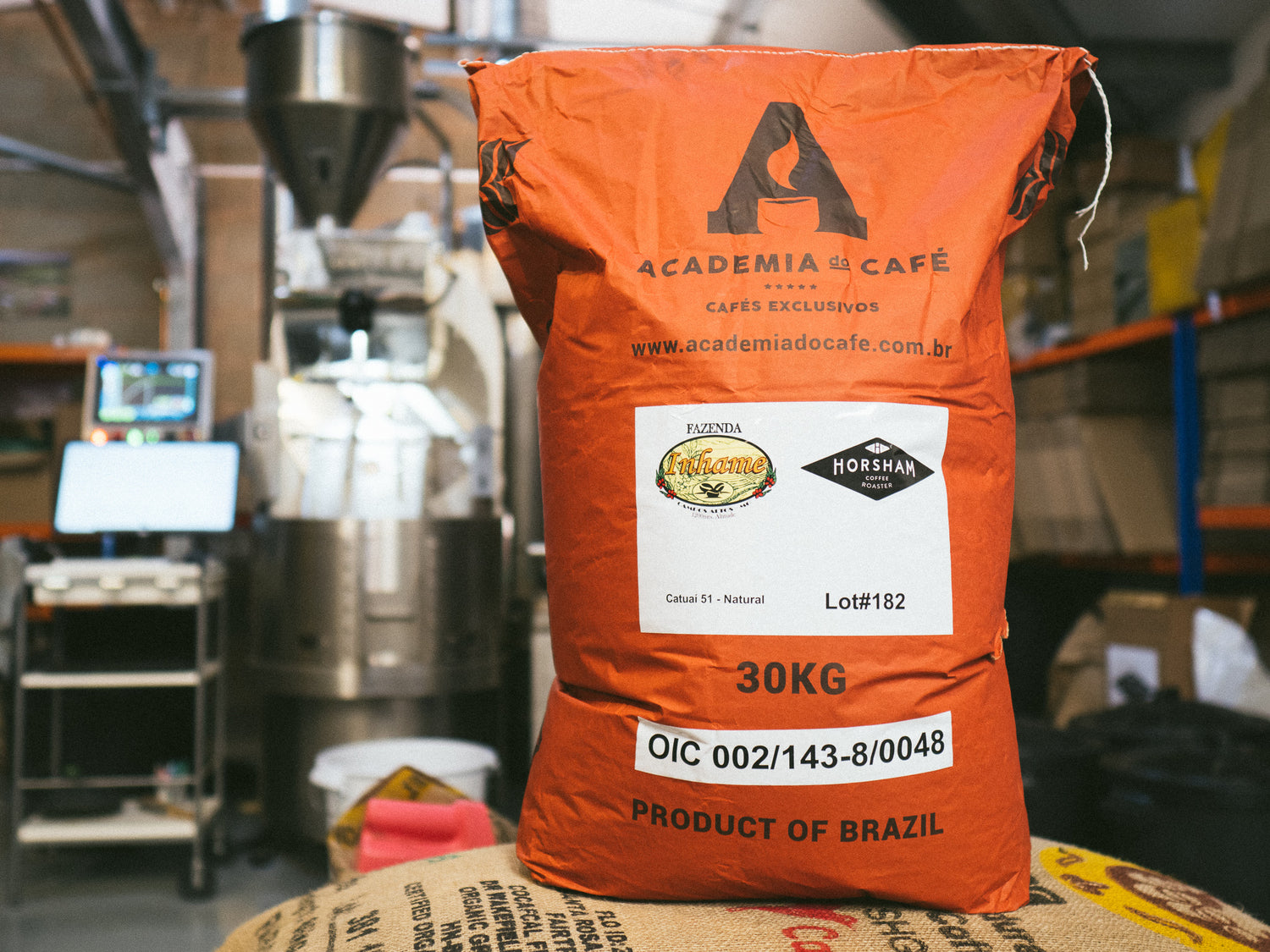
Farming challenges and the C Market
Coffee producers around the world are significantly affected by climate change and fluctuations in the C Market price. This price is affected by supply and demand, a great harvest in Vietnam and Brazil could flood the market. This means the C price drops and coffee farmers in Africa could suffer as a results. In 2018 the C price maximum was $1.24/lb. This is well below the cost of production and pushes coffee farmers into a downward cycle of poverty. Many give up and replace coffee with other crops or have been forced to abandon their farms. In late 2021 the C price rose peaking at $2.40/lb. While this might be good news if the producer receives the majority of this extra money but that often isn't the case. This is why we prefer to focus on fixed prices that are based on cost or production with stable prices year on year.
Brazil tends to be an exception to this with producer pricing following the C price.
FOB and the price we pay
FOB is an industry term that means 'Free on board'. This is the price paid by us to the exporter in the origin country to cover costs of coffee, milling, grading, transportation, packing and loading into a container at the port ready for shipping to the UK. Typically a producer will receive about 70% of the FOB price with the remaining amount allocated to essential preparation costs in order to get the coffee ready to ship. We list the farm gate price for some of our coffees when the data is available. We are working on gathering acurate data for all of our coffees.
The table below lists our direct trade lots with full pricing transparency. Last updated October 2025.

The 'Horsham FOB Price' is the price we paid for the coffee but does not include the cost of transportation to the UK, financing and storage. The 'World Market Price' is the C market price during the month that we purchased the coffee.
The coffees on our transparency report make up about 75% of our total yearly production volume. The remaining coffees we purchase through well respected importers who maintain direct links with exporters and producers in origins that we haven't yet visited.
A note about Brazil pricing
You might notice that the price we pay for our coffee from Brazil can vary significantly year on year. The global coffee market is complex and the cost of production needs to be considered. In some countries the costs of production are fairly high, Costa Rica is a good example. The country is stable, minimum wages are in place, land is expensive and coffee is grown on steep mountains requiring only hand harvesting. These all contribute to a high cost base.
Brazil is very different, farms tend to be large, terrain is much easier to work on and producers can use a range of mechanical equipment to assist with harvesting and processing on much larger scales. The C market price has a significant effect on the price of coffees from Brazil and if this varies then so will the price requested by the producers.
Discover sustainably sourced coffee
-
Horsham Coffee Roaster
Coffee of the Month Subscription
Regular price From £10.25Regular priceUnit price per -
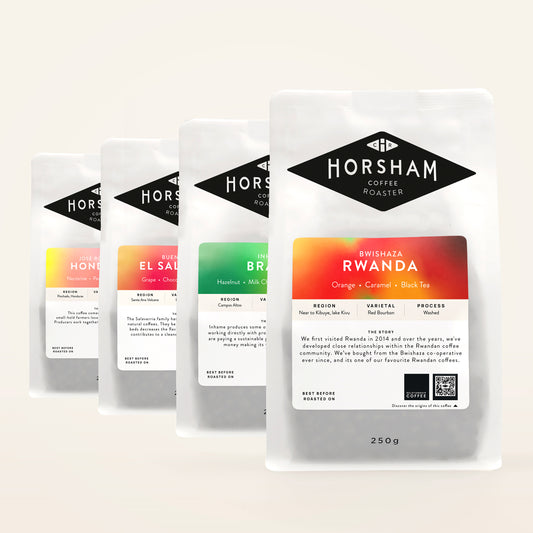 10% OFFHorsham Coffee Roaster
10% OFFHorsham Coffee RoasterSingle Origin Coffee Selection
Regular price £43.20Regular priceUnit price per£48.00Sale price £43.20Sale -
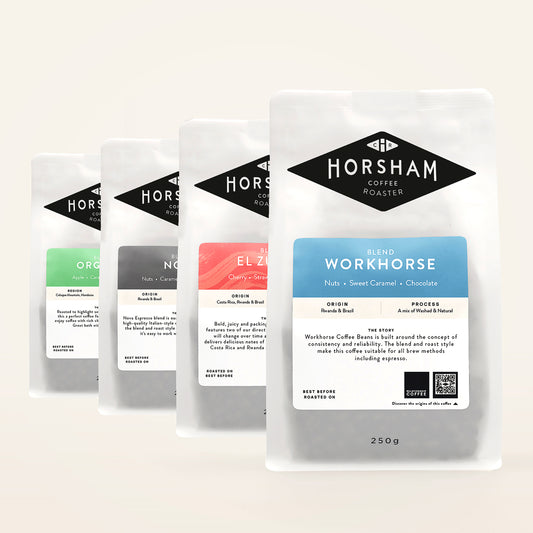 10% OFFHorsham Coffee Roaster
10% OFFHorsham Coffee RoasterBlend Selection
Regular price £35.00Regular priceUnit price per£39.00Sale price £35.00Sale -
 NEW LIMITED LOTMango | Passion Fruit | Honeydew Melon
NEW LIMITED LOTMango | Passion Fruit | Honeydew MelonArturo Arango Colombia | Thermal shock natural
Regular price From £25.00Regular priceUnit price per

